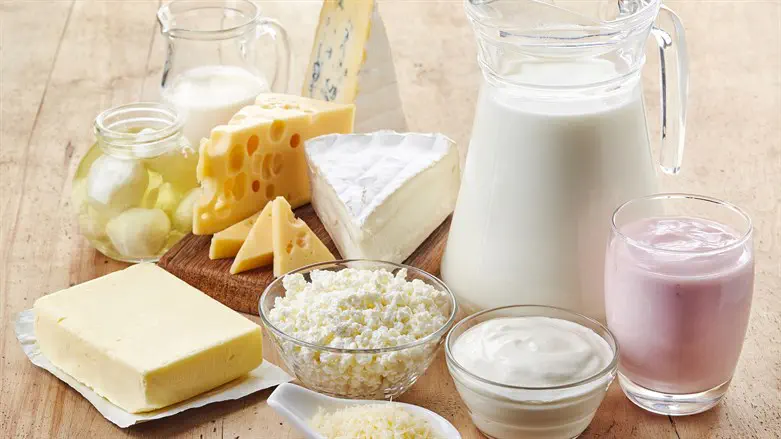
The government's Pricing Committee, jointly staffed by representatives of the Finance and Agriculture Ministries as well as others, issued a recommendation on Wednesday to update the prices of supervised milk products with an 6.5 percent increase, according to a report on Israel Hayom.
At this stage, the suggestion is only a recommendation that has been issued to Finance Minister Avigdor Liberman and Agriculture Minister Oded Forer. Meanwhile, negotiations are ongoing between the government, the dairy farms, and the dairy companies, and there is therefore still a chance that the price rise will be averted.
However, if prices of supervised milk products do rise, it is reasonable to assume that this will have a knock-on effect on the prices of all dairy products. Currently, the prices of milk, cottage cheese, soft white cheese, and a few other products are supervised by the government.
According to Israel Hayom, negotiations between the government and the dairies have stalled, with the Tara dairy company refusing to absorb any increase in the cost of raw milk it purchases from the dairy farms and insisting that if the price of raw milk does rise, it will pass on the increase to the consumer. Back in November, Tara was already requesting a price increase of 9.2 percent for supervised dairy products, following an increase in the cost of raw milk.
The price of raw milk purchased by the country's dairies (Tnuva, Tara, and Strauss) is set once every quarter, based on the expenses of the dairy farms, which have been increasing lately, largely due to more expensive animal feed. Much of the country's animal feed is imported from Ukraine.
The prices of supervised milk products, on the other hand, are only altered following authorization by government ministers, largely in accordance with the recommendations of the Pricing Committee. Ministers have not authorized a price increase for the past three years.
Minister Forer stressed that, "The role of the Pricing Committee is to issue recommendations; the Finance and Agriculture Ministers are the ones to make the decisions. The prices of supervised milk products have barely increased during recent years, but they are still 80 percent higher than the average in OECD countries, largely due to the fact that Israel's markets are protectionist, with import barriers in place - but also because most of Israel's animal feed is imported, which is not the case in Europe.
"The Committee's recommendation for price increases comes at a time of great economic challenges across the world," he added, "due both to the COVID crisis and the war in Ukraine. However, I will not permit people to exploit this in order to impose wild price increases. I will be using all the means at my disposal to prevent price increases from occurring."
